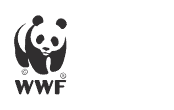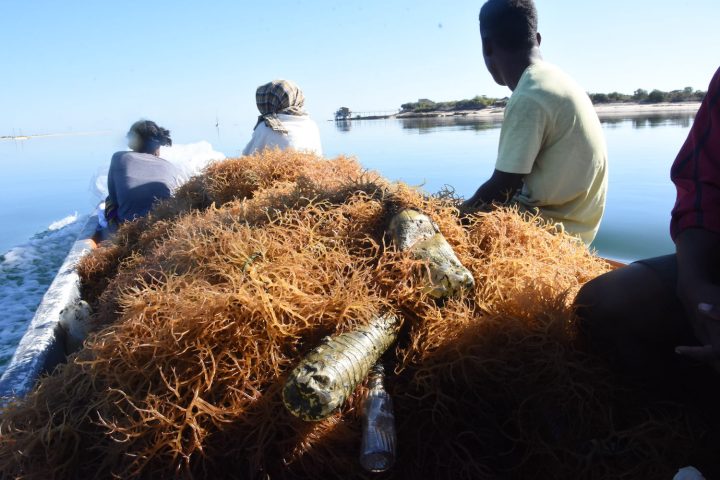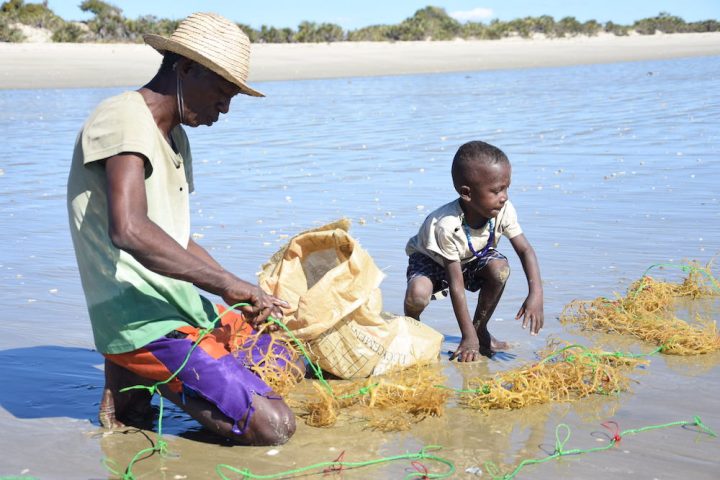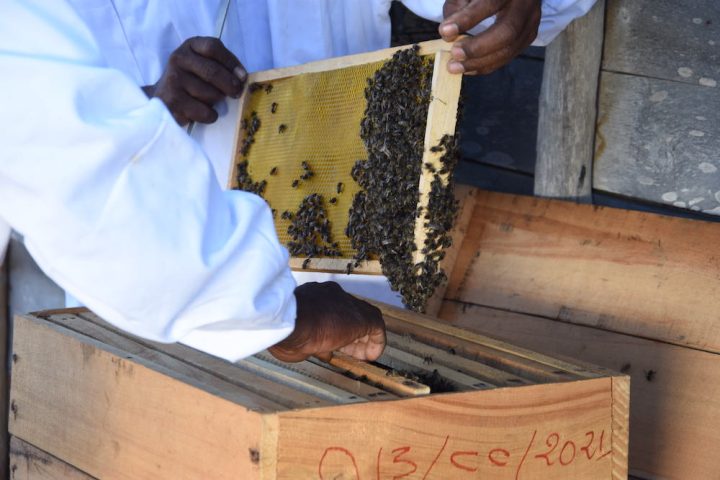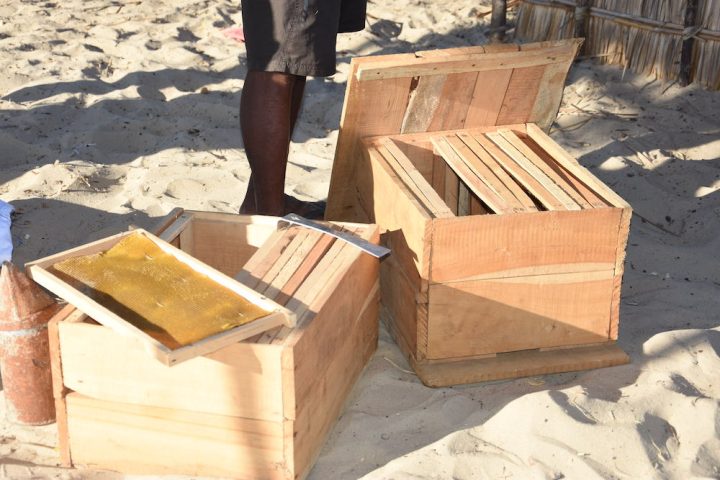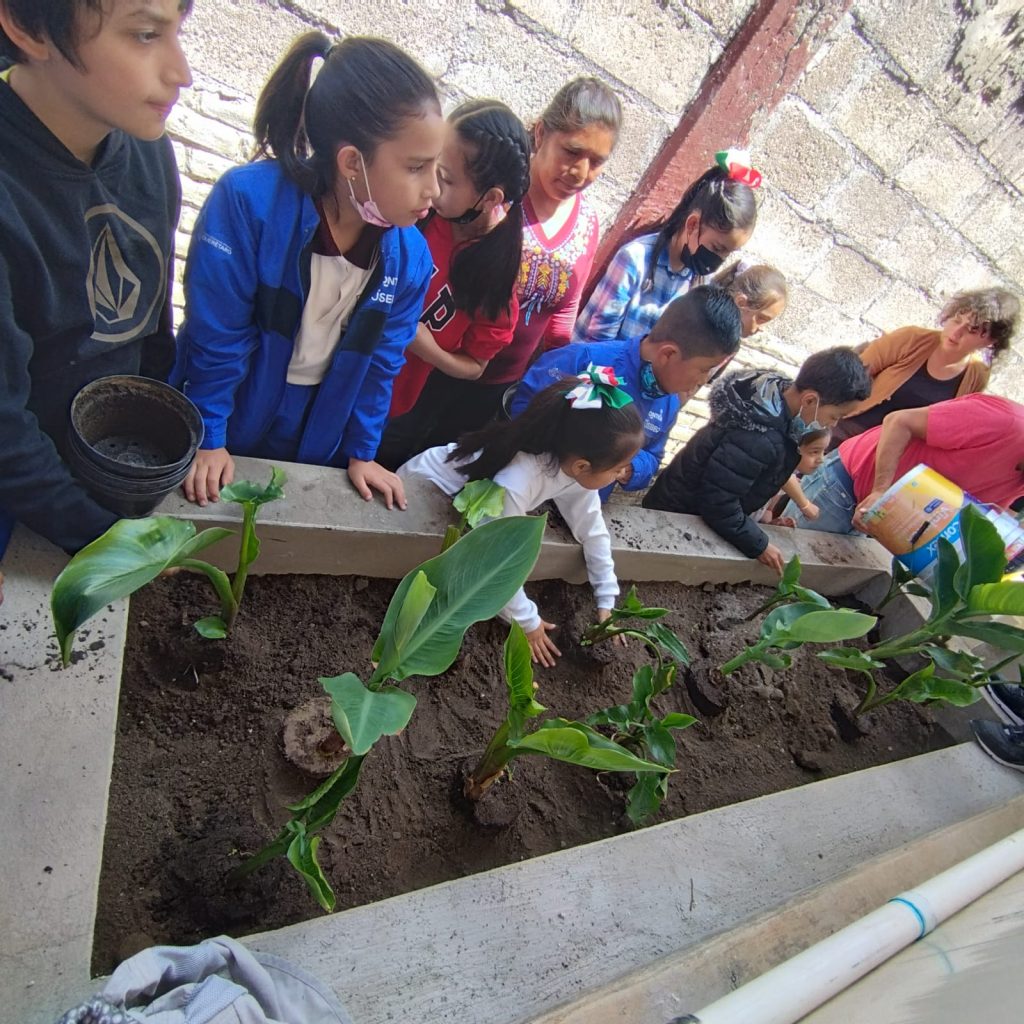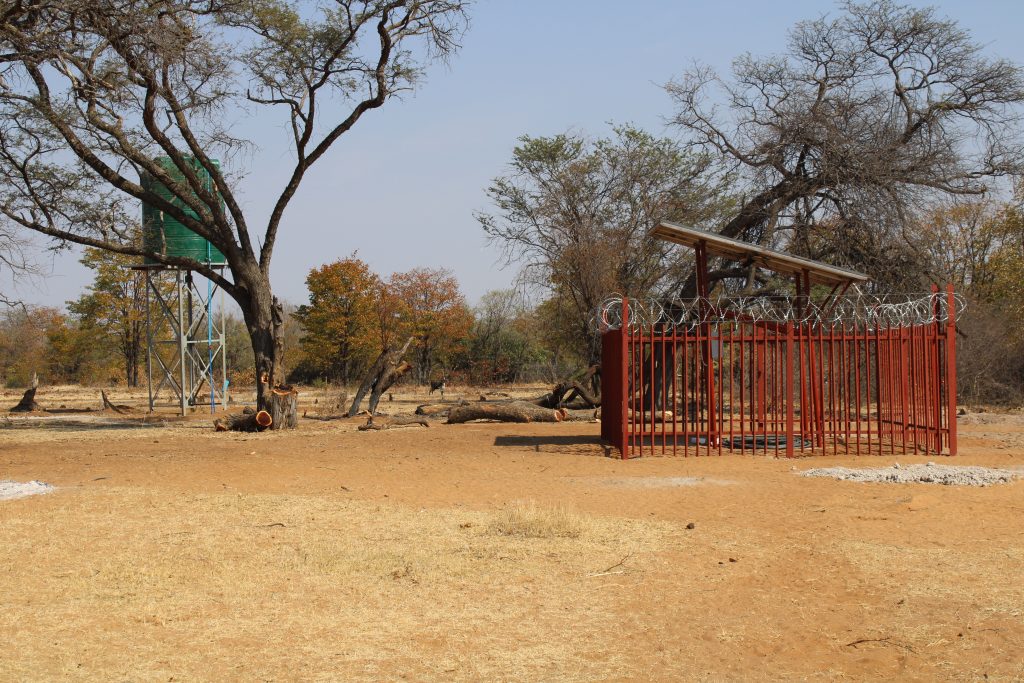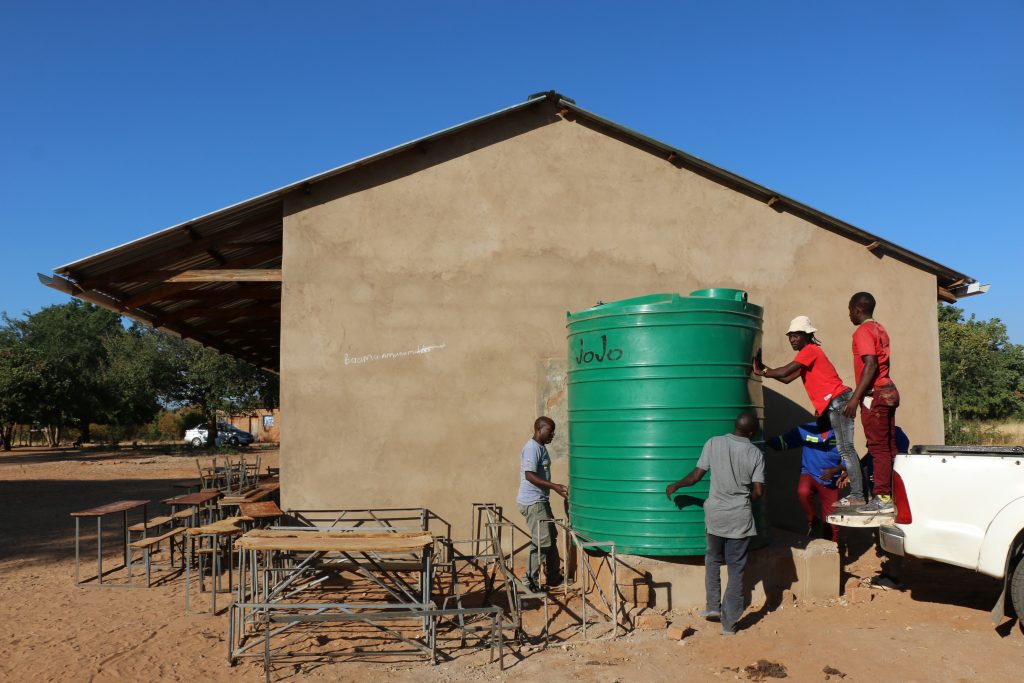Purpose
Create sustainable alternative livelihoods for coastal communities that build resilience to changing rainfall patterns and reduce pressure on fisheries.
CLIMATE IMPACTS
Ankoba community members report the following impacts:
Reduced abundance of fish
Increased reliance
on destructive fishing practices and equipment
Crop failure
due to insufficient or unreliable rainfall
Reduced availability of freshwater
Livelihood loss
due to crop loss and fish declines
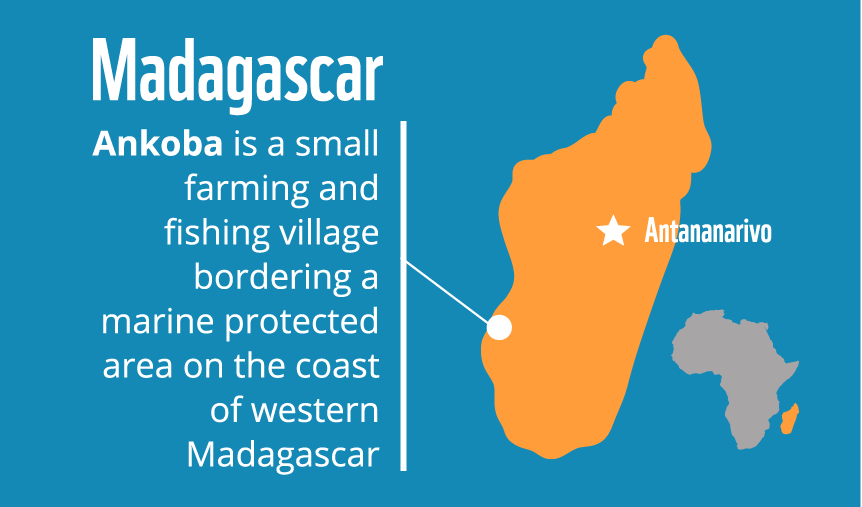
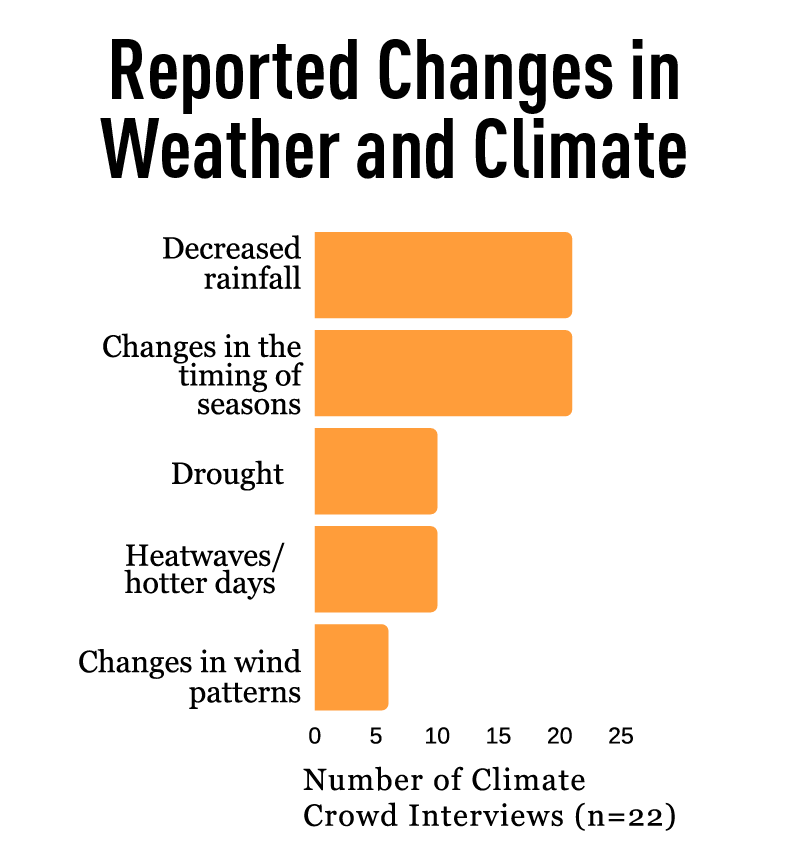
Activities
Identification
of seaweed and beekeeping sites
Training local communities
on seaweed production and beekeeping techniques
Purchase and installation of materials for seaweed and beekeeping production.
Beekeeping requires recycled wooden boards to serve as frames, safety equipment to protect against bee stings, relief wax, stainless steel wire, and a queen grill. Seaweed farming requires buoys and rope of various sizes and lengths.
Provide market access
for the sale of products to the private sector
project outcomes
Did you know?
In addition to being a resilient source of income for coastal communities, seaweed farming has a number of environmental benefits. Seaweed can help mitigate climate change by storing carbon. It can also reduce local effects of ocean acidification and improve oxygen levels.
project design
With agricultural production declining due to drought, people are relying more heavily on fishing, placing greater pressure on already strained fisheries. This project establishes seaweed farming and beekeeping to help households diversify their income and lessen the burden on marine ecosystems. Seaweed farming will be primarily driven by local women, facilitating women's involvement in income-generating activities.

